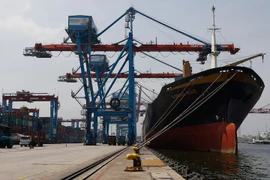Jakarta (VNA) – Indonesia targets an additional electricity capacity of more than 2,000 MW by the end of 2025 in order to meet growing power demand and work towards national energy independence.
President Director of PLN Indonesia Power Edwin Nugraha Putra said that as electricity is crucial to the national economy, increasing the electricity capacity will support faster economic growth, as well as industrialisation and modernisation in the country.
PLN Indonesia Power currently has a total net power capacity of more than 19.5 GW.
In 2025, several new power plants will be put into operation, namely PLTU Jawa 9 and 10 with a capacity of 2,000 MW and BMPP Nusantara 2 Kolaka 60 MW.
PLN Indonesia Power is making efforts to meet the growing electricity needs in the country, along with the increasing use of equipment whose energy source comes from electricity, said Edwin.
He added the company will also continue to tap into new and renewable energy to realise the target of sustainable energy independence. It will also boost energy transition by utilising biomass to reduce coal use in electricity generation.
The moves are part of Indonesia’s efforts to reduce dependence on fossil fuel and achieve the net zero emissions target by 2060./.
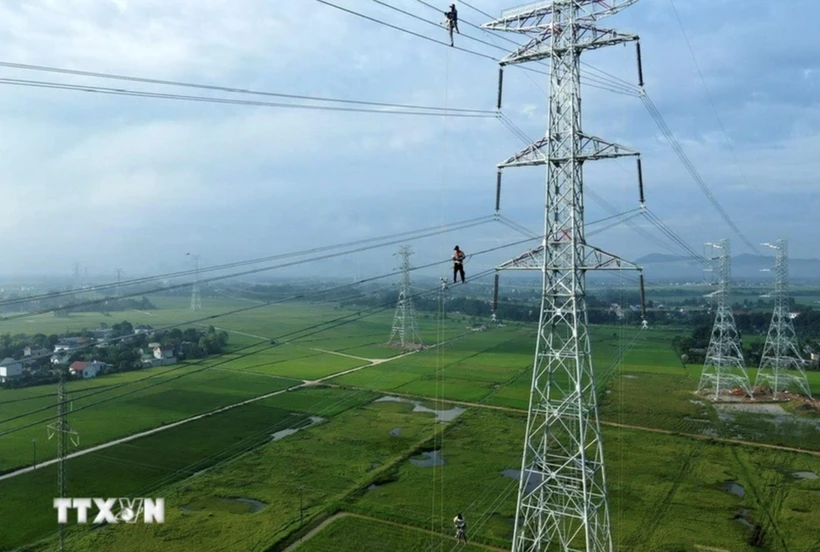
See more

Latin American communist parties call Vietnam’s April 30 victory a beacon of global liberation
Communist parties across Latin America have affirmed the global significance of Vietnam’s April 30, 1975 victory that led to the liberation of the South and national reunification.
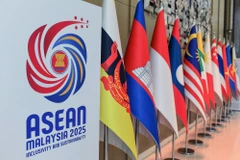
Malaysia plans security training, simulation for 46th ASEAN Summit
The 46th ASEAN Summit is expected to bring together leaders from all 10 ASEAN member states to discuss regional issues, foster economic cooperation and champion the principles of inclusiveness and sustainability.

Vietnam’s 50-year reunification celebration garners Argentine press’s attention
The April 30, 1975 triumph stands as one of the most remarkable milestones in the Vietnamese people’s history of national building and defence.
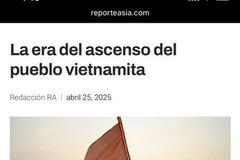
Latin American media analyses Vietnam’s new era of national rise
The article, entitled "La era del ascenso del pueblo vietnamita" (The era of Vietnam’s rise), highlighted the transformative influence of the August Revolution in 1945, which ushered in a new chapter in Vietnamese history with the people taking charge of their destiny for the first time.

Three more Indonesian airports meet international standards
Previously, in April 2024, Indonesia issued a decree to reduce the number of international airports from 34 to 17. This move aimed to optimise aviation operations, focus resources on airports with high international traffic and improve service quality.

Argentinean media highlights Vietnam’s message of reconciliation, peace
The article cited Vietnamese Party General Secretary To Lam’s speech delivered at the event, as saying: “With the policy of closing the past, respecting differences, looking towards the future, our entire Party, people and army together strive to build a peaceful, unified, happy, prosperous and developed Vietnam.”

Indonesian paper spotlights Vietnam’s development journey
Dramatic changes have taken place in Vietnam since economic reforms were enacted in 1986. The country’s economic development through the ‘Doi Moi’ (Renewal) received praise from the world and showed that the country entered a period of integration, a turning point of growth after 1986.

Thailand pledges to address foreign tourists’ complaints
Sorawong said that every case involving foreign tourists will now be reported directly from the police to him. Tourists can submit requests for assistance via the Thailand Tourist Police application, and a tourist assistance centre has been established in every province to support visitors.

Communist Party of Spain’s periodical highlights Vietnam’s historic milestones, achievements
The April 30, 1975 victory was noted as a defining moment that ended decades of struggle against foreign aggression and oppression. The reunification of Vietnam not only reshaped the geopolitical landscape of Southeast Asia but also inspired anti-colonial movements worldwide. However, the article acknowledged the immense cost of war: millions of lives lost, widespread destruction from chemical defoliants like Agent Orange, and an economy fractured by decades of conflict.

Bank of Thailand cuts interest rate to two-year low
The Bank of Thailand's Monetary Policy Committee voted 5-2 to reduce the one-day repurchase rate by 25 basis points to 1.75%, the lowest level in two years.
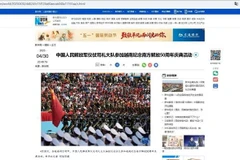
Chinese state media spotlights Vietnam’s grand celebration of reunification anniversary
In its report, Xinhua quoted General Secretary of the Communist Party of Vietnam Central Committee To Lam as saying that under the Party's leadership, the Vietnamese people and armed forces have united to rebuild, reconstruct, and develop the country.

Nikkei Asia highlights Vietnamese people’s pride at reunification celebration
The article reported Lam’s calling on Vietnamese people to build upon the spirit of the great victory in the spring of 1975, and the values and triumphs over the past 40 years under 'Doi Moi' (renewal) to reap greater triumphs and forge new miracles in the new era.

Vietnam in the hearts of Cuban friends
The daily Juventud Rebelde (Rebel Youth) - a newspaper of the Young Communist League - described Vietnam’s victory on April 30, 1975 as a “brilliant epic” and highlighted “President Ho Chi Minh affirmed that ‘Vietnam is one, the Vietnamese people are one’ – and that day, that aspiration came true.”

Thailand highlights ‘Khao Mak’ as symbol of wellness and soft power
This is the first time Thailand has dedicated an initiative to elevate Khao Mak as a global symbol of wellness and cultural identity.
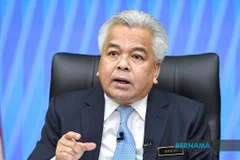
ASEAN officials discuss Community Vision 2045, Timor Leste membership, nuclear free zone
As a regional bloc that maintains collaboration on shared interests, all discussions at the ASEAN SOM meetings were centred on ensuring comprehensive and forward-looking approaches for a more prosperous, peaceful, and secure ASEAN region.
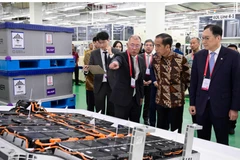
RoK firms pledge nearly 2 billion USD in new investments in Indonesia
The planned increase is equal to more than 10% of the 15.4 billion USD that Korean firms had already invested in Indonesia, said Airlangga.

Thailand, RoK boost trade ties at business forum
A Thai official has called for stronger economic collaboration between Thailand and the Republic of Korea while addressing a bilateral business forum in Seoul.

National reunification celebration helps raise Vietnam’s int'l standing: Malaysian researcher
The military parade marking the 50th anniversary of the liberation of the South and national reunification not only showcased Vietnam’s national defence capabilities but also delivered a powerful message to the international community: no external force can divide Vietnam through military means or economic pressure.
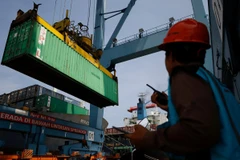
Thailand urges regional collaboration to ensure economic security
ASEAN members have agreed that they should work together by leveraging their own strengths to seek the best common result in response to uncertainties surrounding the US tariff policy.

Mexican media praise Vietnam's victory on April 30, 1975
Highlighting Vietnam’s development journey, Voces Del Periodista, representing a network of 45,000 professional journalists, noted that five decades since reunification and nearly 40 years into the Doi Moi (Renewal) reforms, Vietnam has entered a new stage of progress – an era defined by national aspiration and global ambition.
